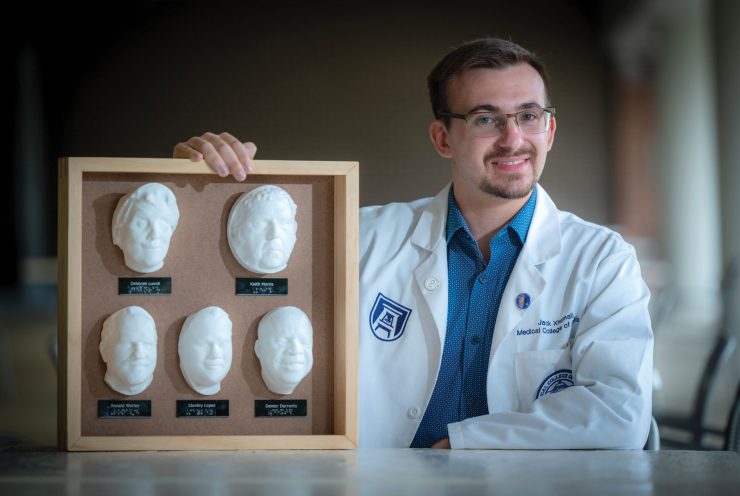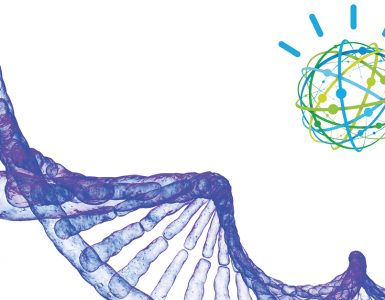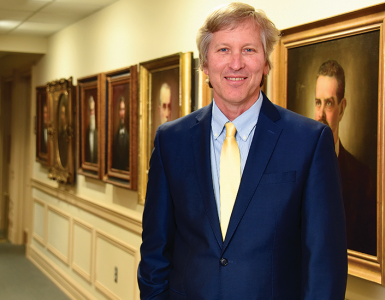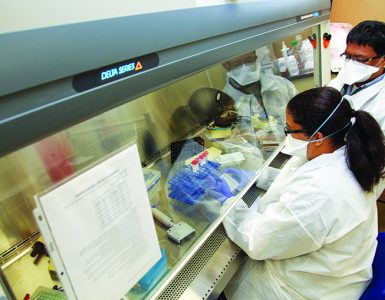Jack Xhemali, a third-year student from Macon, Georgia, is the president and founder of Feel 3D, a nonprofit organization that provides the vision impaired with 3D printed “portraits” of their families, which are more similar to sculptures than to photos of each family member’s head and face. 3D printers use digital files to create solid objects by “laying down” sequential layers of material.
It’s an idea that got its start while he was an undergraduate student at Mercer University in Macon. Xhemali worked with Sinjae Hyun, PhD, professor and chair of biomedical engineering at Mercer, to create 3D printed yearbooks for students at the Georgia Academy for the Blind, also in Macon.
“When he came up with the idea, I thought it was fantastic and wondered why everyone wasn’t doing this. Once I started working on them, I enjoyed it so much that I wanted to keep working on it, but right after I graduated (from Mercer), COVID happened, (temporarily halting the project),” he says. He wanted to continue something similar after arriving in Augusta for medical school “so I thought, ‘I’ll make family portraits instead.’”
Explaining that the creative process is usually not the most challenging, Xhemali says that “Getting families together in one place at one time is often the hardest part. Once we can do that, we bring in a 3D scanner, which are like small, handheld cameras. Then we scan around their face – kind of above and around, from ear to ear and sometimes even the shoulders.” Once the scan is done, Xhemali or another team member takes an actual photo of the face, so they can ensure the accuracy of the scan. They then use 3D modeling software to “model the scan,” he explains. “You can use different (digital) tools to add texture or take it away like sculpture work.” After sculpting is completed, the model is fed to a 3D printer and then the final products are mounted in a wooden frame that also features a voice box with recorded messages from family members and nametags produced by a braille typewriter underneath each face.
For now, Xhemali is working mostly with people who have lost their vision over time and likely have some recollection of the way their families look. “A large part of the blind population in the United States are actually veterans who lost their sight through some sort of combat injury,” he says, noting that he is hoping to also work people who have been blind since birth and have never seen their families’ faces. There has been some research done on how, in those who were born blind, the brain is rewired and allows their sense of touch to overtake their sense of sight, but that is not well understood, he says.
“I just want to give these people something they may not ever otherwise have. I have plenty of pictures of family on my phone. They don’t really have access to anything like that. They can’t see their own pictures if they take them. This is me giving them pictures,” he says. “As human beings, we want to see our friends. We want to see our families. What parent doesn’t want to see their kids?”
Xhemali is working with organizations, including the Lions Club and Georgia Council for the Blind, to find families.
The portraits are paid for through donations and are provided to the families completely free of charge. For more information, visit Feel3D.org










